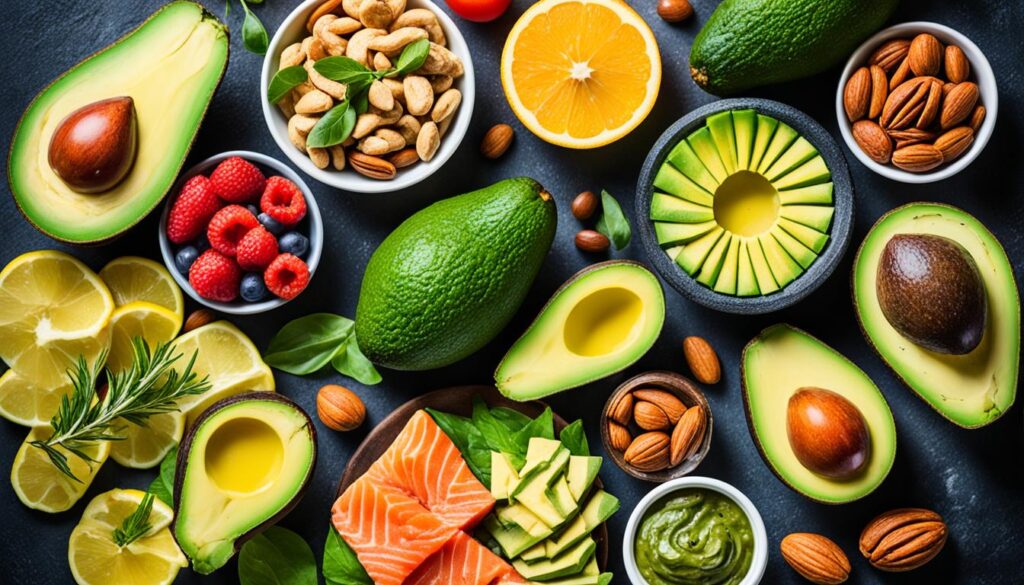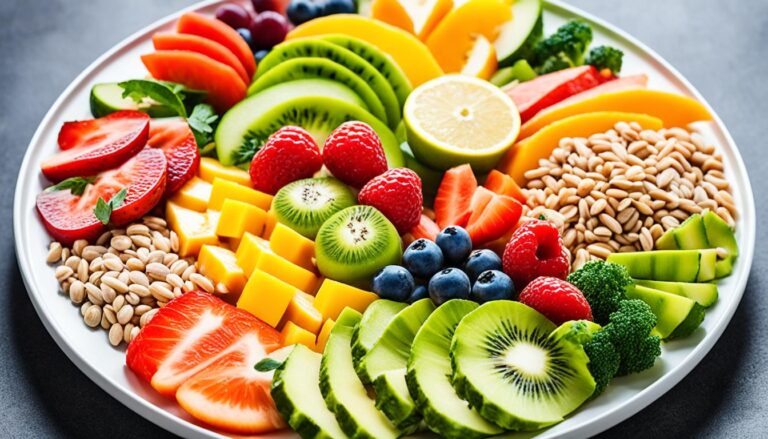Ever wonder why some people can keep off weight easily, while others find it hard? The thing is everyone’s body is different. So not every weight loss method will work for you.
It depends on things like your genes and health condition. To find what helps you lose weight and keep it off you might have to try different foods and diets. This can take a while, and it needs patience and commitment.
Some folks do well by tracking how many calories they eat. Yet, some find it easier to lose weight if they’re not too strict with what they eat. For them, cutting out fried foods or eating fewer refined carbs might be enough.
If a certain diet doesn’t work for you, that’s okay. And if you can’t stick to a diet, it might not be the best one for you. A diet should be something you can do for a long time to be effective.
There’s no quick and easy way to lose weight. But, there are many things you can do to make it easier. Focus on making changes that you can keep up with for good.This means changing your lifestyle in a way that you can maintain over time is crucial.
Key Takeaways
- There is no one-size-fits-all solution to weight loss – find what works best for your body and lifestyle.
- Restrictive diets may not be sustainable focus on developing healthy habits you can stick to.
- Patience, commitment, and experimentation are key to finding the right weight loss approach.
- Curbing emotional eating and developing a healthy relationship with food are important for long-term success.
- Sustainable lifestyle changes, not quick fixes, are the key to lasting weight loss and maintenance.
Understanding the Fundamentals of Weight Loss
Getting to a healthy weight is more than just eating less. Weight loss has twists and turns. Initially, cutting calories leads to losing weight. But, your success may slow even if you keep your calories low. This happens because weight loss involves more than just shedding fat.
Your body’s water weight and muscle can decrease too. Plus, your body’s metabolism might slow down. This makes ongoing weight loss challenging. To keep losing weight, you might have to cut even more calories. This can be tough.
The Calorie Deficit Principle
Some experts view weight gain differently. They believe it’s not about too many calories. Instead, it’s how your body handles carbs. Carbs trigger insulin release. This hormone makes your body store fat instead of using it for energy. Breaking this cycle means eating fewer carbs.
The Role of Metabolism in Weight Loss
Metabolism is key to managing your weight. Trainers in Sydney often work on creating a calorie deficit with their clients. To do this you burn more energy than you take in. Diet and exercise together can help. Changing your lifestyle to boost metabolism is effective. This includes daily exercise for at least 30 minutes. These habits can keep the calorie balance in your favor over time.
The Impact of Carbohydrates and Insulin
Choosing the right foods is important. High-water, low-calorie foods are smart choices. They fill you up without the extra calories.Personal trainers also stress the importance of whole foods. They recommend avoiding refined carbs. This helps keep your insulin levels in check. Doing so can support steady and sustainable weight loss.

Debunking Common Weight Loss Myths
Many think avoiding fat helps prevent weight gain. Yet, not all fats are harmful. Healthy fats found in avocados, nuts, and fatty fish can keep you full. They can also boost mood and fight tiredness. Adding a bit of olive oil to veggies can make healthy food taste better. This improves your diet’s quality.
The Fat Free Fallacy
In the ’90s and 2000s, people feared all fats. They thought avoiding fats was the key to losing weight. Now, we’ve learned the truth. Healthy fats are crucial for a balanced diet and good health.
The Importance of Healthy Fats
5 Fats like those in avocados and nuts help you stay full. Instead of ’empty calories’ from sugar, these foods give you energy. They can also boost metabolism, making it easier to limit calories.
The Mediterranean Diet Approach
The Mediterranean diet is about eating the right fats and carbs. It focuses on fresh fruits, veggies, nuts, fish, and olive oil. Meat and cheese are only eaten in small amounts.5 It also stresses being active and eating meals with others. This approach supports long-term weight control and health.

Managing Emotional Eating and Staying Motivated
Sometimes, we eat not just because we’re hungry. It’s common to munch on food when stressed or anxious. This habit can mess up our eating plans and lead to weight gain.
Knowing what makes you eat emotionally is key to losing weight. For instance if you eat due to stress tiredness or when you’re alone or bored try healthy alternatives. You could practice mindfulness, connect with friends or pick up a new interest.
Identifying Emotional Eating Triggers
Emotional eating can be a big hurdle in losing weight stress and boredom often cause us to eat too much. To keep on the right track, it helps to have goals that fit your wellness dreams. Also, building a strong support system and aiming for steady weight loss over fast results is a smart choice.
Studies show that being truly motivated from the heart helps a lot. It’s tough to keep the weight off but possible with the right attitude and plans.
Setting Realistic Goals and Finding Support
Health experts normally suggest aiming to lose 1-2 pounds a week for sustainable results. It’s good to have SMART goals for motivation Specific, Measurable Achievable Realistic and Time bound. Getting support from others is vital to stay on track and responsible during weight loss. Also making your weight loss goals known to others can boost your commitment.

Being positive and setting the right expectations often leads to better weight loss outcomes. By working on your reasons for emotional eating, having realistic aims, and surrounding yourself with support, you can stay inspired and manage your weight for the long haul.
Developing a Healthy Eating Plan
Learning to balance eating well and staying active is key for losing weight and keeping it down. It’s important to set goals you can reach and understand how you eat. Also, controlling the sizes of what you eat is a big part of a healthy plan. Choosing the right foods, like lots of fruits, veggies, whole grains, and lean meats helps you not feel hungry often.
Portion Control and Smart Food Choices
Watching how much you eat is important for losing weight and keeping it off. Paying attention to food portion sizes and making wise food choices lets you eat less without feeling like you’re missing out. Eating foods packed with nutrients such as fruits veggies, and lean meats keeps you full and ready to take on the day.
Balancing Macronutrients for Optimal Weight Loss
Getting the right mix of carbs, protein, and good fats is also key for losing weight the best way. A diet rich in healthy fats, quality carbs, and enough protein makes you satisfied and supports your health.Steering clear of bad fats and processed carbs can help manage your weight and avoid sugar spikes.1

How to Lose Weight and Keep It Off
The Role of Exercise in Weight Loss
Studies show exercise is not top for losing weight. But, it’s key to keep the weight off. People who maintain weight loss exercise daily. This is often moderate to vigorous. Exercise helps burn more calories. It makes it easier to keep a steady weight without gaining back what you’ve lost.
Creating a Calorie Deficit Through Diet
To lose weight, you need a calorie deficit. It’s easier to cut calories with food changes than by just working out.Diet matters more at first, but ongoing physical activity is crucial. Some like counting calories, others find it too strict. Weight loss isn’t always steady as diets slow metabolism down.

Insulin also affects weight gain, mainly if you eat lots of carbs. Low-carb diets swap carbs for more protein and fat, but this might not be healthy long term. The Mediterranean diet focuses on good fats and carbs, along with staying active.
There isn’t one best way to lose weight and keep it off. Choose a method that fits you, like counting calories or following certain diets. Making smart food choices and keeping active are key. This helps you lose weight in a healthy, lasting way.
Lifestyle Changes for Sustainable Weight Management
Losing weight isn’t just about a quick diet. It’s a long journey. This journey needs lifestyle changes. You should focus on being more active, forming good habits, and staying accountable.
Increasing Physical Activity Levels
Adding physical activity boosts your metabolism. It helps burn more calories. Find activities you enjoy. This could be walks, strength training, or new sports. Start small and ramp up your activity over time for lasting results.
Developing Healthy Habits
Healthy eating is as important as being active. Plan nutritious meals and avoid processed foods. Limit sugars and too much alcohol. These changes will make your weight management plan work long term.
The Importance of Accountability
Support from friends or family is crucial. They can help keep you motivated. A weekly check-in with a coach or dietitian also works well. Setting small weight loss goals can keep you on track.
By focusing on becoming more active, eating better, and getting support, you can manage your weight. The journey is a slow build, not a quick fix. Stay patient, celebrate small wins, and keep working on your health.
Overcoming Plateaus and Setbacks
It’s normal to hit weight loss plateaus or bumps in the road.10 These usually happen about six months into trying to lose weight. They can be really frustrating. But, it’s key to tweak your plans when progress slows.
Adjusting Your Strategy
Try shaking up your workout, exploring new recipes, or watching your calories closer. A good tip is to cut back 200 calories a day, if it’s safe to do so. Also, adding just 15 to 30 minutes to your exercise, ramping up the intensity, might be the ticket. Mix up your exercise routines, take some rest, do a bit extra, and watch your nutrition. This and other changes might be just what you need to keep going strong.
Staying Motivated and Celebrating Small Wins
Focus on the big picture of your weight loss, not the daily ups and downs. If you see a setback, stay positive, take steps to bounce back, get some help, and plan new ways to move forward. It’s important to keep checking and tweaking your weight loss goals. Doing this lets you stay realistic and keeps you on track with what you really want.
Plateaus are just hurdles you can jump over with time and effort. Remember, it’s all about the journey. Setting small, reachable goals, having a support team, and celebrating even the little victories like slipping into your best-loved jeans can keep you going strong. This outlook will help you power through the tough spots and reach your goals.

The Long Term Benefits of Weight Loss
Losing weight the right way can bring huge health wins. It can make blood sugar and blood pressure better. And it cuts the chances of getting heart disease and type 2 diabetes. Losing weight also helps ward off cancer.
Improved Health and Reduced Disease Risk
Getting to a healthy weight does more than show on the scale. It drops blood pressure, lowers bad fat levels, and cuts heart disease risk. Plus, it makes moving easier, eases discomfort, and boosts sex life.
Increased Energy and Confidence
Lightening your load helps your head and heart too. You’ll see changes like a better mood and sleep. Feeling fit boosts your confidence. Sticking to healthy choices makes these benefits last.
While it’s not easy, losing weight pays off big. Work on your mind and body together. This can give you more pep, joy, and self-belief. It’s not just about the scale, but building habits for a healthy life.
Conclusion
Losing weight and keeping it off is tough, but it’s doable with the right approach. Avoid strict diets and too much exercise. Aim for lasting healthy habits.
To shed weight effectively, create a calorie deficit. Do this by eating balanced meals, moving more, and addressing emotional overeating. This helps you keep the weight off in the long run.
Remember, it’s fine to be patient and celebrate small achievements. Never hesitate to ask for help when you need it. Staying consistent in your efforts and prioritizing your well-being will lead you to your weight loss success. You’ll also experience better health, more energy, and feel more confident. Achieving a healthier lifestyle is worth it.
There isn’t just one way to lose weight and maintain it. It’s about discovering what works uniquely for you. By trying different methods and taking a holistic approach, you can meet your weight loss objectives. Furthermore, you can have a continued, healthy lifestyle.
Let’s start this journey together. Take it step by step. With the support and right mindset, you can achieve your target weight16 and revel in being a healthier and happier version of yourself.
FAQ
Is there a one size fits all solution to permanent weight loss?
Why does weight loss sometimes slow down or stop even when I’m still eating the same number of calories?
Is all fat bad for weight loss?
How do I overcome emotional eating and stay motivated for weight loss?
Is exercise more important than diet for weight loss?
What are the keys to sustainable weight management?
How can I overcome weight loss plateaus and setbacks?
What are the long-term benefits of healthy weight loss?
Source Links
- https://www.helpguide.org/articles/diets/how-to-lose-weight-and-keep-it-off.htm
- https://www.webmd.com/diet/features/the-abcs-of-weight-loss
- https://www.urbanfitness.com.au/blog/weight-loss/12-key-fundamentals-of-losing-weight
- https://www.nm.org/healthbeat/healthy-tips/fitness/weight-loss-misconceptions
- https://www.ramsayhealth.co.uk/blog/weight-loss-surgery/debunking-weight-loss-myths-the-truth-behind-successful-weight-loss
- https://www.healthline.com/nutrition/weight-loss-motivation-tips
- https://www.eatingwell.com/article/7922773/best-way-to-lose-weight-and-keep-it-off-according-to-experts/
- https://www.health.harvard.edu/topics/diet-and-weight-loss
- https://www.ncbi.nlm.nih.gov/books/NBK221839/
- https://diet.mayoclinic.org/us/blog/2021/11-setback-recovery-tips/
- https://zoe.com/learn/weight-loss-plateau
- https://vnvfit.com/blog/8-ways-to-overcome-a-weight-loss-plateau
- https://www.piedmont.org/living-real-change/secret-benefits-of-weight-loss
- https://www.ncbi.nlm.nih.gov/pmc/articles/PMC5764193/
- https://www.sciencedaily.com/releases/2022/08/220811135349.htm
- https://continentalhospitals.com/blog/how-to-lose-weight/
- https://www.vox.com/2014/11/27/7289565/weight-loss-diet-tips





